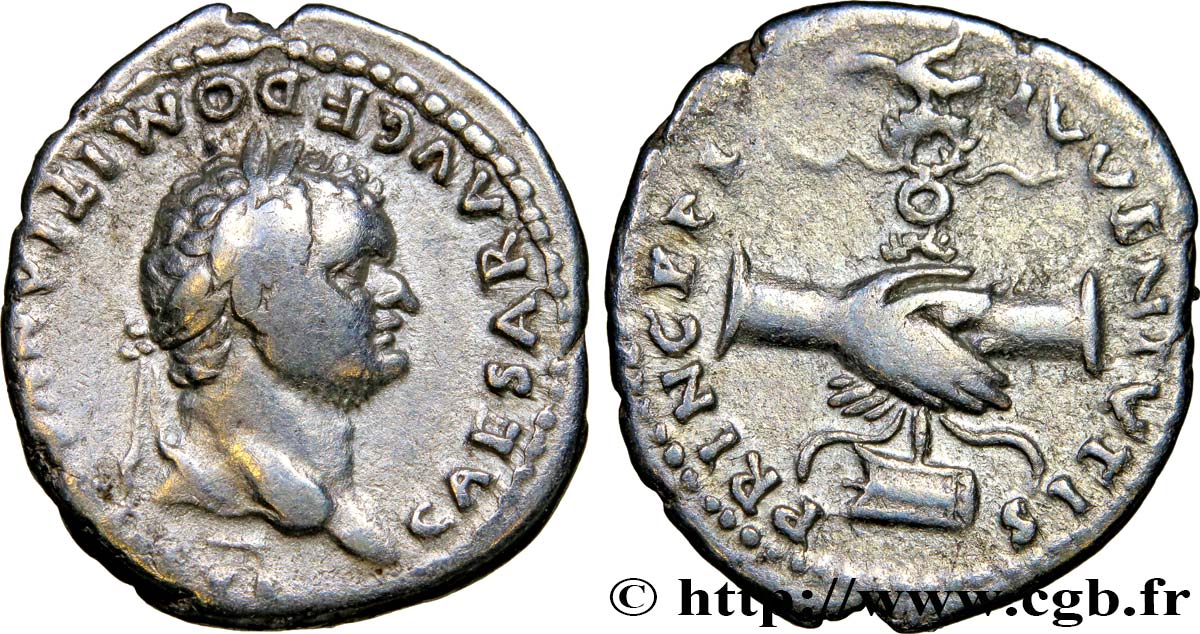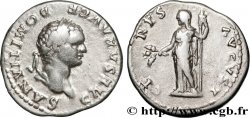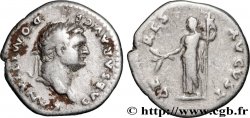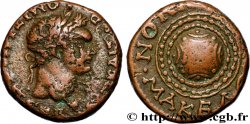E-auction 215-141083 - brm_305724 - DOMIZIANO Denier
Devi Sign-in ed essere un offerente approvato fare un'offerta, Login per fare offerte. Conti sono soggetti ad approvazione e di approvazione sono raggiunti entro 48 ore. Non aspettare fino al giorno di una vendita si chiude per registrarti.Confermando la tua offerta su questo oggetto ti impegni ad un contratto legalmente vincolante per l'acquisto di questo prodotto e fare clic su «offerta» costituisce accettazione dei termini di utilizzo de e-auctions cgb.fr.
Offerta deve essere collocato in euro gli importi interi vendita only.The si chiuderà al momento sulla descrizione dell'oggetto, eventuali offerte pervenute al sito dopo l'orario di chiusura non verranno eseguite. Volte transmition possono variare e le offerte potrebbero essere respinto se si attende per gli ultimi secondi. Per ulteriori informazioni ckeck le FAQ.
SENZA COSTI PER GLI ACQUIRENTI.
SENZA COSTI PER GLI ACQUIRENTI.
| Valutazione : | 145 € |
| Prezzo : | 83 € |
| Offerta maxima : | 85 € |
| Data di fine vendita : | 29 maggio 2017 14:26:30 |
| partecipanti : | 13 partecipanti |
Tipo : Denier
Data: 79
Nome della officina / città: Roma
Metallo : argento
Titolo in millesimi : 900 ‰
Diametro : 19 mm
Asse di coniazione : 6 h.
Peso : 3,33 g.
Grado di rarità : R1
Commenti sullo stato di conservazione:
Exemplaire sur un flan ovale et irrégulier bien centré. Belle tête de Domitien. Joli revers bien venu à la frappe. Patine grise superficielle. A été nettoyé anciennement
N° nelle opere di riferimento :
Diritto
Titolatura diritto : CAESAR AVG F DOMITINANVS COS VI.
Descrittivo diritto : Tête laurée de Domitien à droite (O*).
Traduzione diritto : “Cæsar Augusti Filius Domitianus Consul sextum”, (César fils d’auguste Domitien consul pour la sixième fois).
Rovescio
Titolatura rovescio : PRINCEPS - IVVENTVTIS.
Descrittivo rovescio : Deux mains jointes avec une aigle légionnaire (aquila) posée sur une proue de navire.
Traduzione rovescio : “Princeps Iuventutis”, (Prince de la jeunesse).
Commento
Ce revers représente une enseigne très particulière qui pourrait avoir un rapport avec des navires d’observation, “Speculatoria navigia”, (César 4, 26), cités aussi par Tite-Live. Il est très proche du denier de Marc Antoine (RCV 1484), où seules les deux mains jointes diffèrent. Ou, plus simplement, il peut être un appel à la loyauté de l’armée afin de reconnaître les nouveaux princes, comme le fera quelques années plus tard Nerva avec un denier présentant exactement le même revers, à la légende “CONCORDIA EXERCITVM” (RCV 3020). Ce type sera repris sous Titus, avec la mention du septième consulat de Domitien césar (cf. RCV. 2673).
This reverse represents a very particular sign which could have a connection with observation ships, “Speculatoria navigia”, (Caesar 4, 26), also cited by Livy. It is very close to the denarius of Mark Antony (RCV 1484), where only the two joined hands differ. Or, more simply, it could be an appeal to the loyalty of the army in order to recognize the new princes, as Nerva would do a few years later with a denarius presenting exactly the same reverse, with the legend “CONCORDIA EXERCITVM” (RCV 3020). This type will be taken up under Titus, with the mention of the seventh consulate of Domitian Caesar (cf. RCV. 2673)
This reverse represents a very particular sign which could have a connection with observation ships, “Speculatoria navigia”, (Caesar 4, 26), also cited by Livy. It is very close to the denarius of Mark Antony (RCV 1484), where only the two joined hands differ. Or, more simply, it could be an appeal to the loyalty of the army in order to recognize the new princes, as Nerva would do a few years later with a denarius presenting exactly the same reverse, with the legend “CONCORDIA EXERCITVM” (RCV 3020). This type will be taken up under Titus, with the mention of the seventh consulate of Domitian Caesar (cf. RCV. 2673)








 Segnalare un errore
Segnalare un errore Stampate la pagina
Stampate la pagina Condividi mia selezione
Condividi mia selezione Fai una domanda
Fai una domanda Consegnare / vendere
Consegnare / vendere
 Descrittivo
Descrittivo









